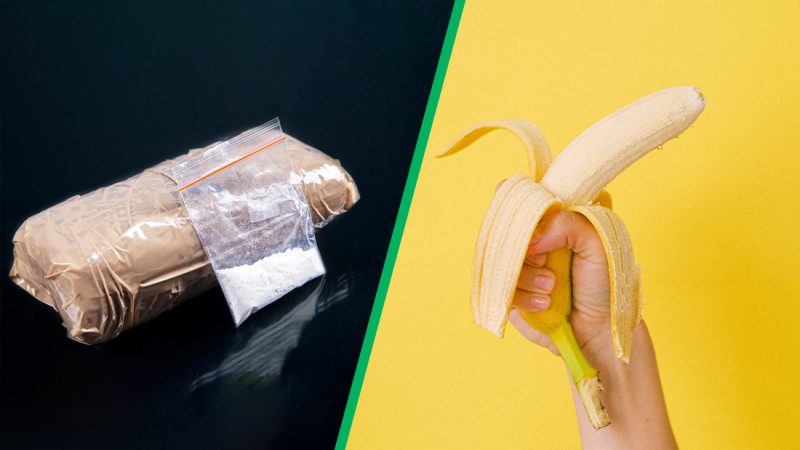In recent months, cocaine has increasingly been smuggled through batches of bananas, which is… a bit bananas itself.
Earlier this year supermarket staff found $131NZD million worth of cocaine hidden in bananas but this isn’t the only spotting of the items together. In 2018, New Zealand customs officers found 190kgs worth of cocaine in a banana shipment. At the time it was the largest cocaine bust New Zealand had seen. So why is this delicious fruit being mixed up with heavy drugs?
One theory is that bananas and cocaine are both sourced from Latin America and are popular in Europe. The UK is the largest consumer of bananas in Europe and annually spends about $6.2NZD billion on rock & powder cocaine.
Bananas are a great disguise for drug smugglers as they are regularly shipped due to high demand. Since the fruit is quickly perishable, there's more pressure on customs to process them quickly.
Makes you wonder why fruit has gotten so expensive lately…
Organised crime consultant Tony Saggers commented that bananas and cocaine are particularly high in demand in the UK.
“It therefore makes sense to utilise the legitimate presence of one to cover and conceal the other, towards the same entry points and markets. Traffickers will know that hundreds of banana consignments will embark on UK-bound journeys and to some extent play on the law of averages in terms of disruption.”
Tony says that cocaine traffickers could be setting up their own shipments using fake companies/documentation or they’re intercepting legitimate shipments and removing them when they arrive.
New Zealand and Australia are also considered to be ‘lucrative’ markets to smugglers.
Jerry McDermott from Insight Crime told VICE:
“There are three reasons that cocaine is so often moved in banana shipments. First, the main banana-producing region of Colombia, Uraba, is home to the country's most powerful drug trafficking organisation, the Gaitanistas, as is the exporting port of Turbo.”
“Second, bananas, as perishable goods, need to move through ports as quickly as possible, putting pressure on customs authorities. And third, bananas need to be transported in refrigerated containers, which are perfect for hiding cocaine, either in the cooling units or the thicker walls.”
Mystery solved, no wonder why bananas are so appeeling. Now the next time we hear about bananas and cocaine in the same headline, we won’t be left scratching our heads.




